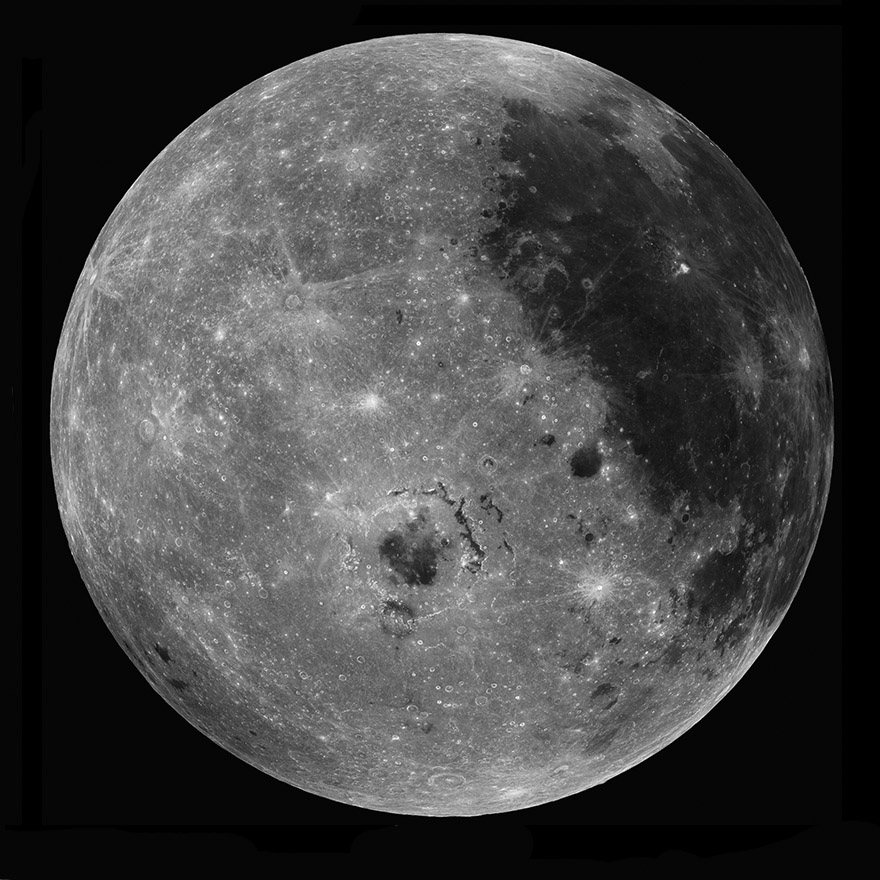Difference between revisions of "July 30, 2013"
| Line 1: | Line 1: | ||
__NOTOC__ | __NOTOC__ | ||
=Fictitious Moon= | =Fictitious Moon= | ||
| − | |||
<!-- ws:start:WikiTextHeadingRule:0:<h1> --> | <!-- ws:start:WikiTextHeadingRule:0:<h1> --> | ||
<!-- ws:start:WikiTextLocalImageRule:6:<img src="/file/view/LPOD-Jul30-13.jpg/442713060/LPOD-Jul30-13.jpg" alt="" title="" /> -->[[File:LPOD-Jul30-13.jpg|LPOD-Jul30-13.jpg]]<!-- ws:end:WikiTextLocalImageRule:6 --><br /> | <!-- ws:start:WikiTextLocalImageRule:6:<img src="/file/view/LPOD-Jul30-13.jpg/442713060/LPOD-Jul30-13.jpg" alt="" title="" /> -->[[File:LPOD-Jul30-13.jpg|LPOD-Jul30-13.jpg]]<!-- ws:end:WikiTextLocalImageRule:6 --><br /> | ||
| − | <em>image by [http://www.lroc.asu.edu/news/index.php?/archives/790-A-Unique-View-Of-The-Moon.html LROC Team] (NASA/GSFC/Arizona State University)</em><br /> | + | <em>image by [http://www.lroc.asu.edu/news/index.php?/archives/790-A-Unique-View-Of-The-Moon.html" rel="nofollow LROC Team] (NASA/GSFC/Arizona State University)</em><br /> |
<br /> | <br /> | ||
| − | Finally a spacecraft has flown around the western limb of the Moon to capture a full Moon view of that hemisphere. Well that has happened before, including the excellent Luna 8 [http://lpod.wikispaces.com/August+21%2C+2006 view.] And of course, Clementine mosaicked the [http://www.lpod.org/coppermine/albums/userpics/LunarFarside_Clementine_LTVT.JPG entire] Moon under mostly full Moon lighting. But look closely at either of those prior images and you will see that, as is always the case, overhead lighting is not possible near the poles so shadowed craters occur there. But not in this image. The Sun appears to illuminate every location from directly overhead. So this isn't a snapshot of the Moon, nor even a normal mosaic. The Lunar Reconnaissance Orbiter Camera team has collected so many Wide Angle Camera (WAC) mosaics of the Moon at multiple phase angles that they were able to construct this fictitious view. As LROC PI Mark Robinson [http://www.lroc.asu.edu/news/index.php?/archives/790-A-Unique-View-Of-The-Moon.html explains], these multiple data sets allowed statistical correlations to be established between illumination angle, look angle and reflectivity. Then using the WAC-derived topographic map to correct for slopes, calculations determined the correct brightness for each pixel assuming near vertical illumination and look angles. This is a remarkable result. We can now study all parts of the Moon in uniform high Sun views, allowing precise mapping and comparisons of albedo values. In looking at the LROC hemisphere maps I wondered what full Moon polar mosaics would look like. Mark and crew have already made them - see slide 5 of this recent PowerPoint [http://lunarscience.nasa.gov/wp-content/uploads/LSF13P/Boyd_nlsf2013.pdf presentation.]<br /> | + | Finally a spacecraft has flown around the western limb of the Moon to capture a full Moon view of that hemisphere. Well that has happened before, including the excellent Luna 8 [http://lpod.wikispaces.com/August+21%2C+2006 view.] And of course, Clementine mosaicked the [http://www.lpod.org/coppermine/albums/userpics/LunarFarside_Clementine_LTVT.JPG" rel="nofollow entire] Moon under mostly full Moon lighting. But look closely at either of those prior images and you will see that, as is always the case, overhead lighting is not possible near the poles so shadowed craters occur there. But not in this image. The Sun appears to illuminate every location from directly overhead. So this isn't a snapshot of the Moon, nor even a normal mosaic. The Lunar Reconnaissance Orbiter Camera team has collected so many Wide Angle Camera (WAC) mosaics of the Moon at multiple phase angles that they were able to construct this fictitious view. As LROC PI Mark Robinson [http://www.lroc.asu.edu/news/index.php?/archives/790-A-Unique-View-Of-The-Moon.html" rel="nofollow explains], these multiple data sets allowed statistical correlations to be established between illumination angle, look angle and reflectivity. Then using the WAC-derived topographic map to correct for slopes, calculations determined the correct brightness for each pixel assuming near vertical illumination and look angles. This is a remarkable result. We can now study all parts of the Moon in uniform high Sun views, allowing precise mapping and comparisons of albedo values. In looking at the LROC hemisphere maps I wondered what full Moon polar mosaics would look like. Mark and crew have already made them - see slide 5 of this recent PowerPoint [http://lunarscience.nasa.gov/wp-content/uploads/LSF13P/Boyd_nlsf2013.pdf" rel="nofollow presentation.]<br /> |
<br /> | <br /> | ||
| − | <em>[mailto:tychocrater@yahoo.com Chuck Wood]</em><br /> | + | <em>[mailto:tychocrater@yahoo.com" rel="nofollow Chuck Wood]</em><br /> |
<br /> | <br /> | ||
<strong>Related Links</strong><br /> | <strong>Related Links</strong><br /> | ||
Revision as of 22:48, 4 January 2015
Fictitious Moon

image by " rel="nofollow LROC Team (NASA/GSFC/Arizona State University)
Finally a spacecraft has flown around the western limb of the Moon to capture a full Moon view of that hemisphere. Well that has happened before, including the excellent Luna 8 view. And of course, Clementine mosaicked the " rel="nofollow entire Moon under mostly full Moon lighting. But look closely at either of those prior images and you will see that, as is always the case, overhead lighting is not possible near the poles so shadowed craters occur there. But not in this image. The Sun appears to illuminate every location from directly overhead. So this isn't a snapshot of the Moon, nor even a normal mosaic. The Lunar Reconnaissance Orbiter Camera team has collected so many Wide Angle Camera (WAC) mosaics of the Moon at multiple phase angles that they were able to construct this fictitious view. As LROC PI Mark Robinson " rel="nofollow explains, these multiple data sets allowed statistical correlations to be established between illumination angle, look angle and reflectivity. Then using the WAC-derived topographic map to correct for slopes, calculations determined the correct brightness for each pixel assuming near vertical illumination and look angles. This is a remarkable result. We can now study all parts of the Moon in uniform high Sun views, allowing precise mapping and comparisons of albedo values. In looking at the LROC hemisphere maps I wondered what full Moon polar mosaics would look like. Mark and crew have already made them - see slide 5 of this recent PowerPoint " rel="nofollow presentation.
" rel="nofollow Chuck Wood
Related Links
21st Century Atlas page 96.



